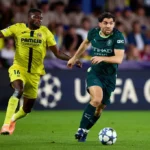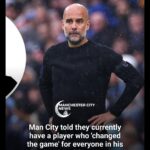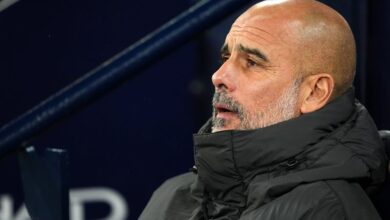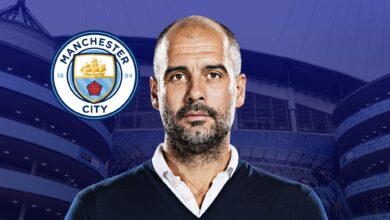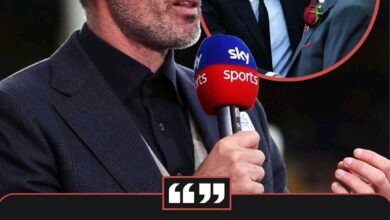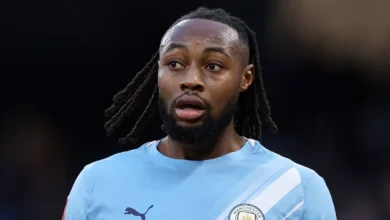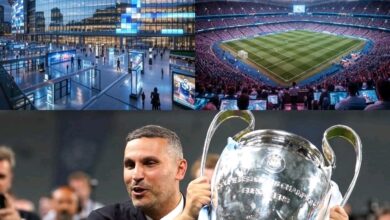Man City keep or sell: Grealish, Ederson and Kovacic all sold to stop Guardiola ‘quitting
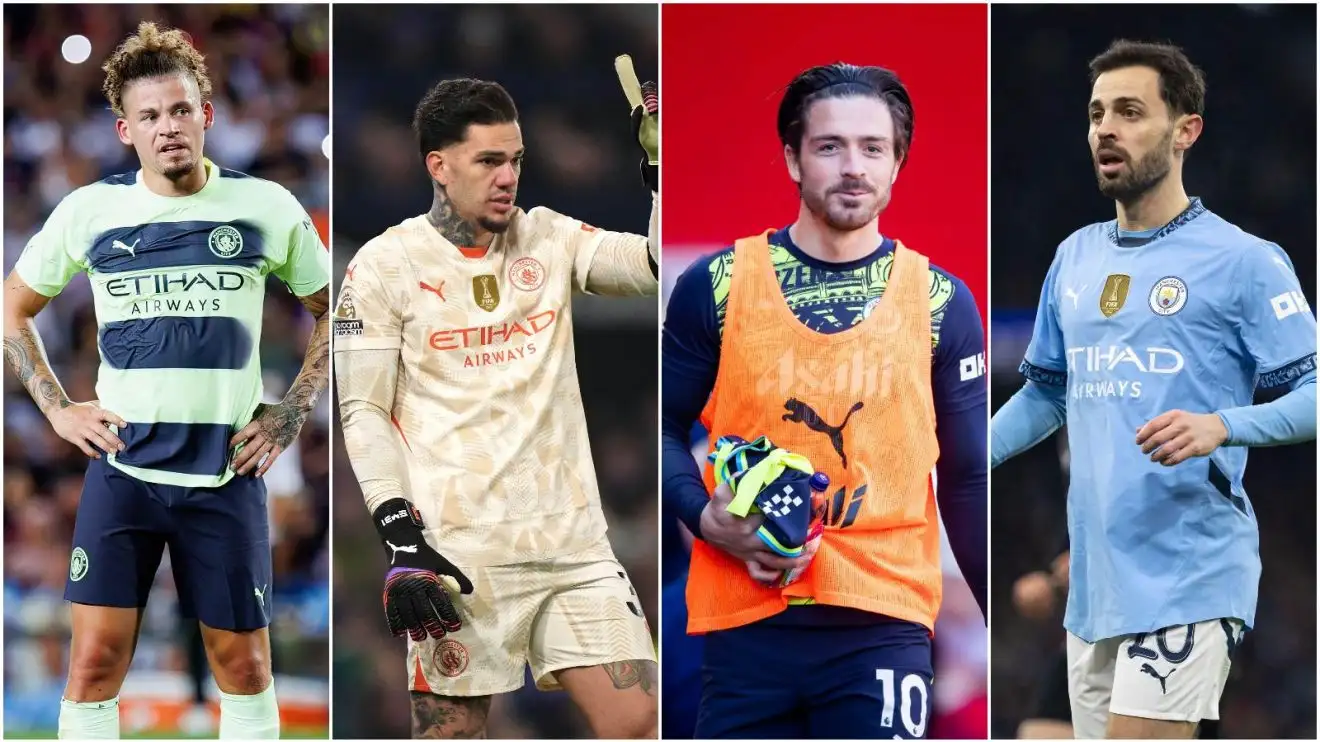
The Brazilian goalkeeper’s potential departure represents one of the most significant decisions Manchester City will face this summer. Ederson has been nothing short of revolutionary since his arrival from Benfica in 2017, fundamentally changing how goalkeepers are perceived in modern football. His ability to play out from the back, combined with his exceptional distribution range, has been instrumental in Guardiola’s tactical evolution at City.
However, several factors point toward a summer exit being the most pragmatic decision for all parties involved. Ederson’s repeated flirtations with Saudi Arabian clubs suggest a player whose head may have been turned by the astronomical wages on offer in the Middle East. The goalkeeper’s public statements about considering new challenges, combined with his agent’s activities in the transfer market, indicate a relationship that may have run its natural course.
From a financial perspective, Ederson’s sale would represent significant value for City. At 31 years old, he retains considerable market appeal, particularly for clubs seeking a goalkeeper who can immediately elevate their playing style. The potential transfer fee, estimated to be in the region of £40-50 million, would provide valuable funds for City’s rebuild while removing a substantial salary from their wage bill.
The timing also aligns with City’s broader squad refresh. Ederson’s departure would symbolize the end of an era while providing an opportunity to integrate younger talent or pursue a different goalkeeper profile that might better suit Guardiola’s evolving tactical approach.
Stefan Ortega: The Reliable Deputy
Stefan Ortega’s emergence as a genuine contender for the number one position represents one of Manchester City’s most astute pieces of business in recent years. The German goalkeeper, signed on a free transfer from Arminia Bielefeld, has consistently impressed during his opportunities, demonstrating the technical ability and composure required to play in Guardiola’s system.
Ortega’s performances have been characterized by reliability and competence, crucial attributes for a goalkeeper operating in City’s high-risk, high-reward playing style. His shot-stopping ability, combined with his comfort in possession, makes him an ideal candidate to step up as the club’s primary goalkeeper. The 32-year-old’s experience and professionalism also make him an excellent mentor for any incoming young goalkeeper.
Retaining Ortega provides City with stability during what promises to be a transitional period. His understanding of the club’s tactical requirements, combined with his proven ability to perform under pressure, makes him an invaluable asset regardless of whether he assumes the number one role or continues as a reliable backup.
Scott Carson: The Veteran Presence
While Scott Carson’s playing contributions may be limited, his value to Manchester City extends far beyond his on-field performances. The veteran goalkeeper’s presence in the squad provides leadership, experience, and institutional knowledge that proves invaluable during challenging periods.
Carson’s role as a mentor to younger players, combined with his understanding of the pressures associated with playing for a club of City’s stature, makes him an important figure in the dressing room. His contract situation presents an opportunity for City to retain his services at a minimal cost, providing continuity during a period of significant change.
The decision to keep Carson represents sound squad management, ensuring that City maintains a balance between youth and experience while preserving the cultural values that have contributed to their success.
Defensive Reconstruction: Youth and Experience
Kyle Walker: The End of an Era
Kyle Walker’s departure to AC Milan on loan in January 2025 effectively marked the end of his Manchester City career. The England international’s contributions to City’s success cannot be overstated – his pace, athleticism, and attacking thrust from right-back have been crucial components of Guardiola’s tactical setup for nearly a decade.
However, Walker’s decline has become increasingly apparent over the past two seasons. His defensive positioning has deteriorated, and his once-explosive pace has diminished to the point where he can no longer consistently recovery from poor positional play. The 35-year-old’s wages, reportedly among the highest at the club, no longer reflect his current contribution level.
AC Milan’s option to purchase Walker permanently represents the ideal solution for all parties. The Italian club benefits from his experience and leadership qualities, while City can remove a significant salary from their wage bill and invest in younger alternatives. Walker’s legacy at City is secure, but his departure is essential for the club’s future development.
Rico Lewis: The Academy Graduate
Rico Lewis represents everything Manchester City’s academy system aspires to produce. The versatile defender’s ability to play across multiple positions, combined with his technical ability and tactical intelligence, makes him an ideal fit for Guardiola’s system. His progression from academy prospect to first-team regular demonstrates both his individual quality and the club’s commitment to developing homegrown talent.
Lewis’s versatility has proven invaluable during City’s injury crisis, with the young defender adapting seamlessly to different tactical roles. His comfort in possession, combined with his work rate and pressing intensity, aligns perfectly with Guardiola’s tactical requirements. The 20-year-old’s potential for further development makes him a crucial component of City’s future plans.
Retaining Lewis provides City with a cost-effective solution to their defensive needs while maintaining the club’s connection to its academy system. His presence in the squad also satisfies homegrown player requirements, providing additional squad flexibility.
Vitor Reis: The Investment in Potential
Vitor Reis’s arrival in January 2025 represents Manchester City’s commitment to identifying and developing young talent from across the globe. The Brazilian defender’s signing demonstrates the club’s long-term planning and their belief in his potential to develop into a first-team regular.
A loan move for the 2025/26 season would provide Reis with the regular playing time necessary for his development while allowing City to assess his progress in a competitive environment. Girona’s connection to the City Football Group makes them an ideal destination, providing familiar coaching methods and tactical approaches that would ease his transition.
The decision to loan Reis reflects modern football’s approach to player development, where young talents are gradually integrated into high-level competition before being thrust into the pressures of Premier League football.
Abdukodir Khusanov: The Pioneer
Abdukodir Khusanov’s arrival at Manchester City marked a historic moment as the first Uzbek player to feature in the Premier League. The 21-year-old’s adaptation to English football has been challenging, but his age and potential warrant continued investment from the club.
Khusanov’s defensive attributes, combined with his physical presence, provide City with different tactical options. His aerial ability and robust defensive approach offer variety to City’s typically possession-focused style. The young defender’s struggles should be viewed within the context of his age and the significant cultural and football adjustment required.
Retaining Khusanov demonstrates City’s commitment to developing young talent while providing squad depth in defensive positions. His continued development could prove crucial as City navigate the transition from their current defensive stalwarts to a new generation of players.
Midfield Dilemmas: The Heart of the Matter
Mateo Kovacic: The Experienced Professional
Mateo Kovacic’s potential departure represents one of the most complex decisions facing Manchester City this summer. The Croatian midfielder’s experience and technical ability have provided valuable squad depth, but his age and wage demands may not align with the club’s long-term strategy.
Kovacic’s versatility and understanding of the game make him an attractive proposition for numerous clubs across Europe. His ability to play in various midfield roles, combined with his Champions League experience, ensures strong market interest. The potential transfer fee, estimated between £25-30 million, would provide valuable funds for City’s rebuild.
However, Kovacic’s departure would reduce City’s midfield options significantly, particularly given the uncertainty surrounding other squad members. His experience in high-pressure situations and understanding of Guardiola’s tactical requirements make him a valuable asset during transitional periods.
The decision regarding Kovacic ultimately depends on City’s ability to identify and secure suitable replacements. If the club can attract younger, more dynamic midfield options, his sale becomes more palatable. Without adequate replacements, his departure could leave City vulnerable in a crucial area of the pitch.
The Attacking Conundrum: Grealish and the New Direction
Jack Grealish: The Underperforming Asset
Jack Grealish’s Manchester City career has been characterized by unfulfilled potential and tactical limitations that have prevented him from justifying his record-breaking transfer fee. The English winger’s struggles to adapt to Guardiola’s system have been evident throughout his tenure, with his natural instincts often conflicting with the positional discipline required in City’s tactical setup.
Grealish’s market value, while diminished from his peak, still represents significant financial recovery for City. His profile and marketability ensure continued interest from Premier League clubs and European competitors seeking creative attacking options. The potential transfer fee, estimated between £60-70 million, would provide substantial funds for City’s rebuild while removing a considerable salary from their wage bill.
The decision to sell Grealish reflects the harsh reality of modern football: individual talent must align with tactical requirements for sustainable success. His departure would allow City to pursue attacking options that better complement their playing style while providing the financial flexibility to address other squad needs.
Grealish’s sale would also represent a symbolic shift in City’s transfer strategy, moving away from high-profile English signings toward more tactically suitable options regardless of nationality or marketing appeal.
Financial Implications and Squad Balance
The proposed player sales would generate significant transfer revenue for Manchester City, potentially exceeding £150 million depending on market conditions and negotiating success. This financial injection would provide the club with substantial resources to address squad deficiencies while maintaining compliance with Financial Fair Play regulations.
The reduction in wage commitments through these departures would be equally significant, potentially freeing up £40-50 million annually in salary expenses. This financial flexibility would allow City to pursue high-quality replacements while maintaining sustainable financial practices.
The squad balance achieved through these decisions would create a more cohesive unit with clearly defined roles and responsibilities. The removal of peripheral players would strengthen squad harmony while providing clarity regarding each player’s importance to the team’s success.
Guardiola’s Influence and Future Commitment
The success of Manchester City’s rebuild depends significantly on Pep Guardiola’s continued presence at the club. The Catalan coach’s tactical innovations and man-management abilities have been crucial to City’s sustained success, making his retention paramount to the club’s future ambitions.
Guardiola’s reported frustration with the current squad composition suggests his active involvement in the proposed changes. His willingness to make difficult decisions regarding established players demonstrates his commitment to maintaining City’s competitive edge. The coach’s approval of these changes would provide legitimacy to potentially unpopular decisions while ensuring tactical coherence in the rebuilt squad.
The prospect of Guardiola’s departure would fundamentally alter City’s transfer strategy, potentially making the proposed changes even more urgent. A new coach might have different tactical preferences and player requirements, making the current window crucial for establishing a foundation for future success.
Conclusion: The Path Forward
Manchester City’s summer rebuild represents a defining moment in the club’s modern history. The decisions made regarding these key players will determine whether City can successfully transition from their current golden era to a new period of sustained success or face a period of decline that could prove difficult to reverse.
The proposed player sales, while potentially painful for supporters, represent necessary steps toward creating a more balanced, sustainable squad capable of competing at the highest level. The financial benefits of these decisions would provide City with the resources necessary to address squad deficiencies while maintaining their competitive standards.
The success of this rebuild depends on the club’s ability to identify and secure suitable replacements for departing players. The youth development system’s contribution will be crucial, with players like Rico Lewis representing the future of the club. The integration of young talent with selective high-quality signings could create a squad capable of sustained success.
Ultimately, Manchester City’s summer rebuild represents both a challenge and an opportunity. The decisions made in the coming months will determine whether the club can successfully navigate this transitional period and emerge stronger or face a period of uncertainty that could undermine their recent achievements. The stakes couldn’t be higher, but the potential rewards for getting these decisions right could secure City’s future for years to come.
The path forward requires courage, wisdom, and a clear vision for the future. Manchester City has the resources, infrastructure, and leadership to make these difficult decisions successfully. The question remains whether they will have the conviction to implement the necessary changes and trust in their ability to rebuild while maintaining their competitive standards. The summer of 2025 will provide the answers to these crucial questions and determine Manchester City’s trajectory for the decade ahead.

